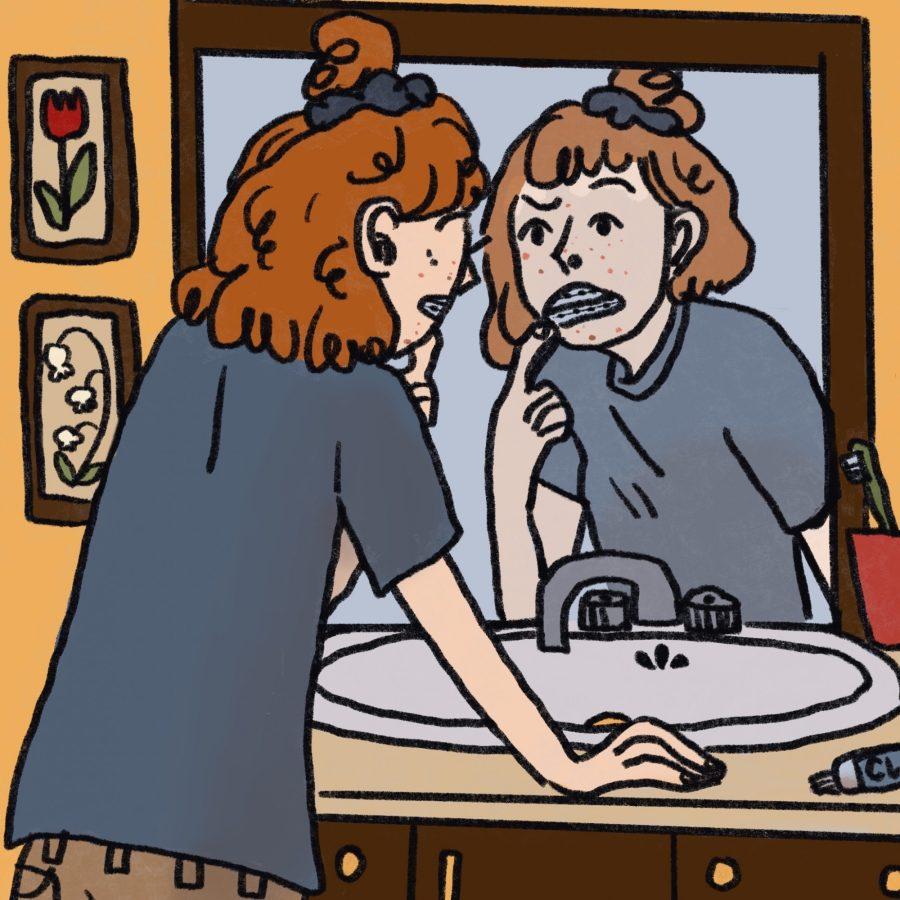As I close in on my freshman year of college, I find the feeling of nostalgia to be one of the most ever-growing presences in both my peers and my young adult life. Oddly enough, we experience a large portion of this nostalgia through social media, particularly TikTok.
We scroll through and are greeted with college decision videos, homecoming “get ready with me’s” and braces getting taken off. We like these videos; they piece together special moments of our lives that we, in some ways, get to relive through social media. The only problem is, a growing number of these videos don’t feel familiar in the slightest, and it’s not just because we aren’t in high school anymore.
My TikTok scrolling was interrupted the other day by a video that I at first thought was one of my peers celebrating her birthday. She had on a shirt that I also have and jeans I would wear. I wouldn’t be surprised in the slightest to see her at a frat party. Upon further inspection, I became incredibly uncomfortable. The balloons in the back didn’t say 19 or 20 – they said 13.
Upon seeing this, I thought back to my 13th birthday. I was covered in acne, had a mouth full of metal and was nowhere near as beautiful or grown-up looking as this 13-year-old. Many comments on this video read that she was dressed and looked like a 20-year-old. She responded to these comments by saying that it’s her body and they should stop “sexualizing her.”
In the age of Facetune and Instagram, it’s almost impossible for these younger generations of girls to not feel pressure to skip the awkward phase and head straight into the sex appeal of womanhood. An excerpt from a 2019 New Yorker article talks about the age of “Instagram face”: catlike eyes, teeny nose and full lips. The face is beautiful and Facetuned to perfection within our favorite models, influencers and TikTokers (filter or not). It’s a pressure our generation, only a few years older, never felt – at least not when we were 13. We made innocent dance Musical.lys or giggled to our favorite Vines. We looked every bit of our age.
So, what’s changed?
University of Arizona freshman Jolie Orban has a large TikTok following of 81,000 – and she had some thoughts on the subject.
“When I was getting popular on the app, I felt lots of pressure to change how I dressed and looked to get more interaction with my content,” Orban said. “It impacted how I viewed myself, as I personally like to avoid sexualizing myself on the internet.”
Jolie is certainly not alone in this feeling, as this pressure is only continuing to grow, especially for the younger generations of girls. They scroll through their TikTok or Instagram feed and are greeted with women five-plus years older than them – often with faces or photos that are incredibly edited or augmented. Naturally, these young girls create the expectation that they should look like them. So, they buy their same clothes and post the same revealing photos. Most times, the only difference between them and actual adult women is that most of them haven’t even graduated middle school.
As expected, this skip of the awkward phase is nowhere near as prevalent within young boys as it is with girls. According to a 2021 BBC article, boys and girls’ mental well-being is fairly similar at the elementary school age. However, after about age 14, the self-esteem of girls drops significantly below that of boys. In fact, the research study discussed in the article showed that one in three girls were unhappy with their appearance by the time middle school was over. It’s no secret that the pressure is on young girls and the effects are troublesome.
Unfortunately, they don’t seem to understand the concerning implications of presenting yourself so maturely online, and can we blame them? The problem isn’t them – it’s the inability of today’s society to just let kids be kids.
My hope is that the toxicity of social media can die down and that these young girls realize they do not need to be hot, desirable or sexually liberated – they just need to be 13.
Follow Olivia Krupp on Twitter

Olivia is a freshman who has yet to declare her major. She enjoys reading, foreign films and poetry in her free time.









